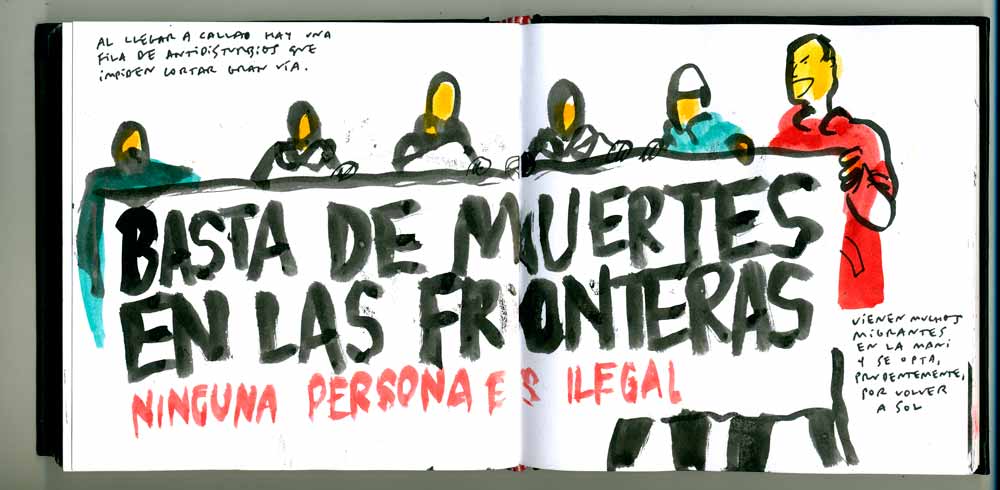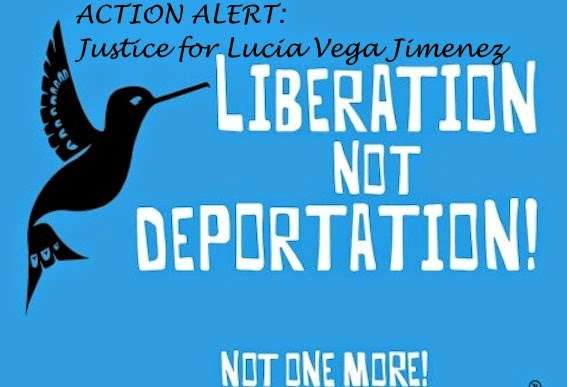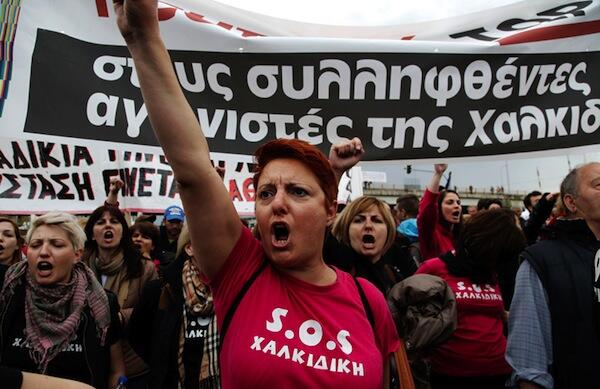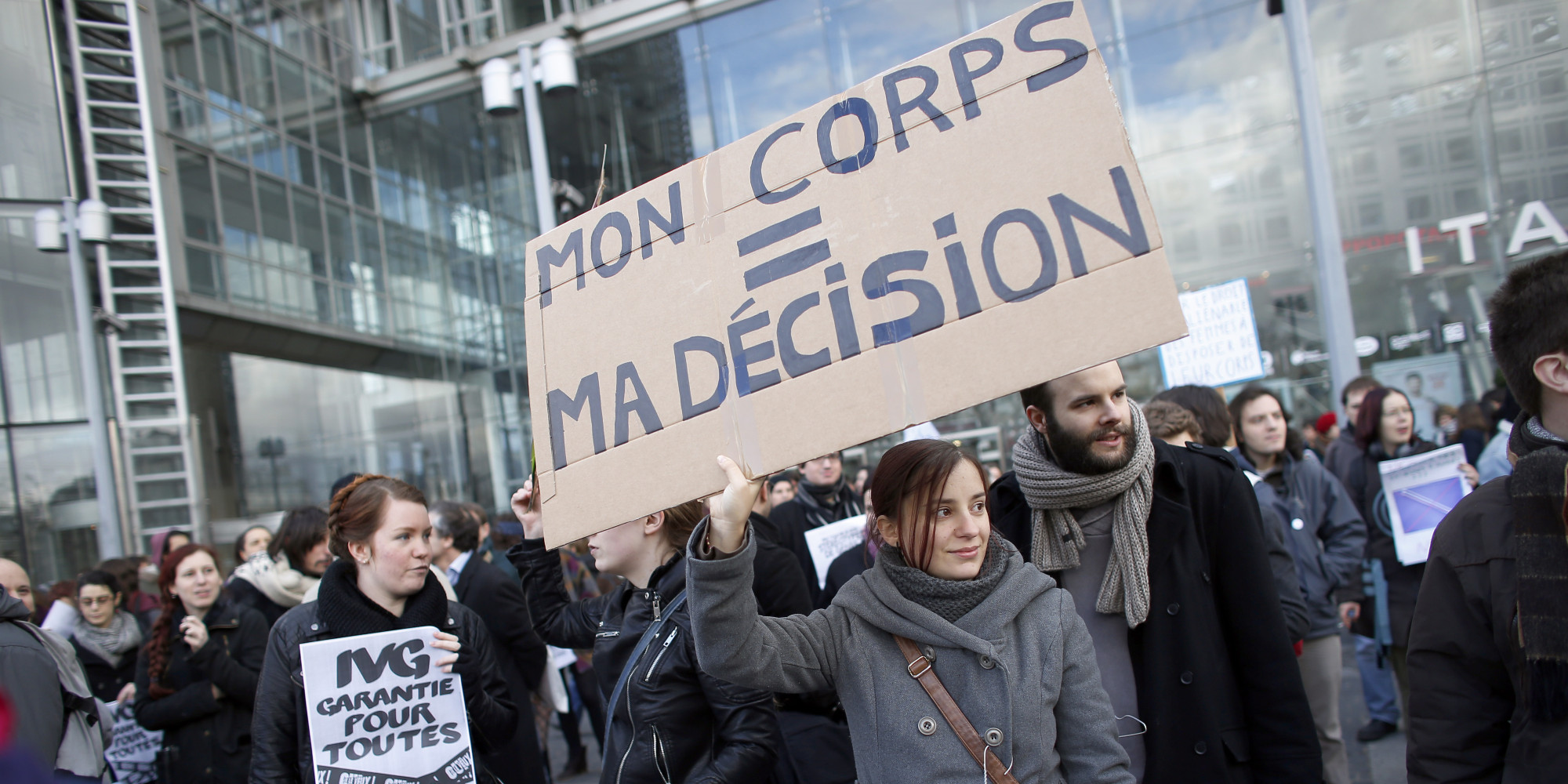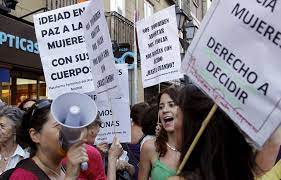
On April 11 2014, Angela Merkel was welcomed by the Greek Prime Minister to celebrate the return of Greece to the official speculative bond market, which means to the free market of debt. “Capitalism is all about borrowing so psychologically and symbolically our return to the markets has been hugely important” declared a professor of economics in Greece. Whose psychological well being is he talking about?
Angela Merkel did not stay long in Greece, not even seven hours, understandably since about 7000 police officers were needed for her not to see any of the faces demonstrating because they have suffered and are still suffering from the austerity measures imposed to achieve the Greek return to the debt market.
Angela Merkel benevolently recognized, “I want to say that the government’s policies have led to many people suffering, and were very hard for the government to implement, but now we can see Greece keeping its promises, fulfilling its obligations, and the budget situation is better than we could have wished for or expected.” How does the psychological affect of the investors and gamblers in the debt economy connect with the suffering of an entire population? These policies have led to death and abject deprivation. Moreover, they triggered the rise of the fascist Golden Dawn, which has murdered fellow Greek citizens, and, sometimes working with police, has targeted immigrants who themselves were escaping violence or impoverishment.
The Greek prisons have been filled with many who were directly impacted by the austerity measures. The conditions of detention are dreadful. Certainly, sending a 90- year-old woman who has Alzheimer to jail for few thousand Euros is a great aid to the debt market economy. The country’s real debt has been the impoverishment of over 600 000 children, but who cares about children? Words seem to have different meanings whether we talk about the future of children or the future of investors.
Inserted in the neoliberal logic of a debt economy Merkel affirmed, “I firmly believe that after a very, very tough phase, this country harbors boundless possibilities still to be exploited.” Ask the cleaning women who have been fighting for their rights. They know who is going to be exploited because they already are. They understood that the “so called” labor market has been deregulated thanks to this tough phase that allowed employers to force them to sign blank contracts. They know the Greek State has organized its own defection and is now subservient to private enterprise.
Angela Merkel took the time to meet with Greek entrepreneurs but did not visit the hospitals or the schools. For example, she could have visited a social community clinic run by Sophia who would have told her, “The philosophy [of our work] is not to subsidize the state, this is not our job.” She would have explained that in Greece today there is no democracy, “Democracy is for people to live better isn’t it? With dignity, with hope for the future. That does not exist anymore!”
Why weren’t these principles of democracy praised by Angela Merkel while she was on Greek soil?
Greeks have organized, and new sites for European solidarity are being formed. New political forces are also rising and elections may change the course of the well orchestrated debt economy. Alexis Tsipras, the leader of the growing Greek leftist party Syriza, has long voiced other views about the debt. In 2012, he explained, “The European citizens should know, however, that loans to Greece are paid into an `escrow’ account and are used exclusively to repay the loans and to re-capitalize near bankrupt private banks. The money cannot be used to pay salaries and pensions, or to buy basic medicine for hospitals and milk for schools … If there is a risk for taxpayers losing their money, it is created by austerity.”
The money other European nations loaned to Greece never went to the Greek people. It was just a displacement of wealth for the advancement of neoliberal finance and power. However, populations are also lost when facing this capitalist delirium. This is part of the program, and it allows policies to continue with their brutal devastation. The efforts that many in Europe thought to be made for a better future have produced misery. Greece’s unemployment is at a record high 28%. More women are unemployed than men, and women and youth make up the bulk of unemployment. The public debt is still at 177% of the GDP. 23.7% of Greeks, and 30.4% of children, are under poverty line. As Greece’s social cohesion has been swiftly ripped apart, the goals of these policies have become clear.
For many including some economists, the solution is also clear. The European Central Bank should take social responsibility and buy back the debt. It is time for the people through struggle to reclaim politics in Europe and elsewhere and thereby create the conditions for a radical transformation. Instead of falling into the trap of a standard of debt that Angela Merkel wants to celebrate with the Greek neoliberal establishment, we must celebrate our social cohesion, our community, and the promise of democracy.
(Photo Credit: YouTube.com / en.enikos.gr in English)

